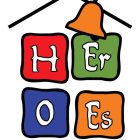Few parents of elementary school students are thinking about high school advanced placement options. Unfortunately, class placement as early as 4th or 5th grade may have a profound impact on a child’s ability to eventually take advanced placement classes in high school.
This is the first of a series of articles to explain accelerated math options to parents. This installment will explain the math options available in most NJ public schools and how elementary school math placement determines a child’s high school options.

THE STANDARD MATH PATH
The first step towards understanding accelerated math is to understand the standard math path followed by the average student.
The average student takes Algebra I in 9th grade. This is followed by Algebra II and Geometry in 10th and 11th grade. While all students must complete Algebra I before taking Algebra II or Geometry, in some districts students take Algebra II before Geometry while in other districts students take Geometry before Algebra II. After completing both Algebra II and Geometry students may take Precalculus in 12th grade.
For students who plan to attend competitive colleges or who are candidates for math-intensive majors such as engineering, computer science, science or business, this is not the recommended path.
ACCELERATED MATH
Almost every school district in the state offers an accelerated math option for selected students. These students take Algebra I in 8th grade. These students complete Algebra II, Geometry and Precalculus one year earlier than their peers. This allows them to take AP Calculus A/B in their senior year.
AP Calculus is designed to prepare students to take the AP Calculus A/B exam in May of their senior year. Nearly all colleges and universities in the United States grant credit and placement to students who earn a 4 or a 5 on the AP exam. For example, Rutgers University will grant a student who earns a 4 or 5 on the AP Calculus A/B/ exam 4 college credits. (http://sasundergrad.rutgers.edu/academics/academic-credit/advanced-placement).
DOUBLE ACCELERATED MATH (7th Grade Algebra I)
Most NJ school districts also offer a double accelerated option for their top math students. These students take Algebra I in 7th grade. They complete Algebra II, Geometry and Precalculus two years earlier than their peers. This allows them to take AP Calculus A/B in their junior year and AP Calculus B/C in their senior year.
These courses prepare students to take the AP Calculus B/C exam which may allow them to earn credit for two college courses. Again, using Rutgers as an example, students who earn a 4 or 5 on this exam earn credit for two math classes: Calculus I and Calculus II for a total of 8 college credits.
OTHER OPTIONS
Some school districts offer additional accelerated math options that may allow students to take AP Statistics, Multi-variable Calculus or even Differential Equations before graduating from high school.
SELECTION PROCESS
Each district has its own process to select students for accelerated math. While some districts post their selection criteria on their website, in other districts the selection process is a closely held secret.
Depending on the district, elementary school students may be selected for accelerated math beginning in 4th, 5th or 6th grade. The typical selection process consists of several components such as teacher recommendation, standardized test scores, grades and performance on a math achievement test.
If a student is not selected for accelerated math for the first year it is offered in their district, they normally may attempt to qualify in subsequent years. However, it is often impossible for them to earn a qualifying score on the achievement test in future years without outside math instruction. This is because the achievement tests for subsequent years may include material that is not taught as part of the standard curriculum for the student’s current grade.
Although it may be difficult for elementary school students to move up to the accelerated math track, it is usually possible with outside support. On the other hand, if a student is not selected for Algebra I in 7th grade, it is usually impossible for them to ever move up to the double accelerated path in subsequent years.
Classes at HEROES Academy move at an accelerated pace. Although each student’s academic journey is unique, most students starting classes at HEROES in 1st or 2nd grade end up taking Algebra I in 6th grade (triple accelerated math) or 7th grade (double accelerated math).

Why Your Strong Math Student May Not Get Into Accelerated Math
Students often apply to HEROES Academy in 6th grade when they realize that other students in their class are in or being placed into an Accelerated Math class, and they don’t understand why or how they’re not in this same class. They earn A’s in math class, and math comes easily to them. They may

Gifted and Talented & Accelerated Math in Monroe Twp, NJ Public Schools
Gifted and Talented & Accelerated Math in Monroe Twp, NJ Many parents aren’t aware of gifted and talented and accelerated math programs in school until after their child has already been evaluated. If you have a child in Monroe Twp Public Schools, your child may be eligible for gifted and talented and/or accelerated math. Monroe
Accelerated Math Resources
Accelerated Math and Language Arts Classes
HEROES Academy offers accelerated math and language arts classes exclusively for gifted and talented students. To find out more about classes at HEROES, click here. To apply to HEROES Academy, click here.
HEROES Academy also runs a microschool for gifted and talented students ages 6 to 10. Find out more here.



